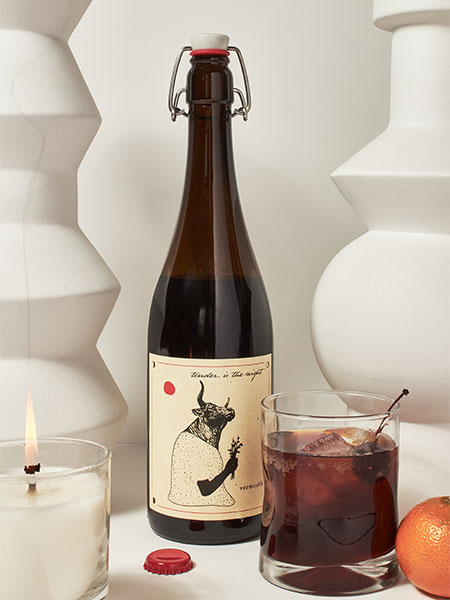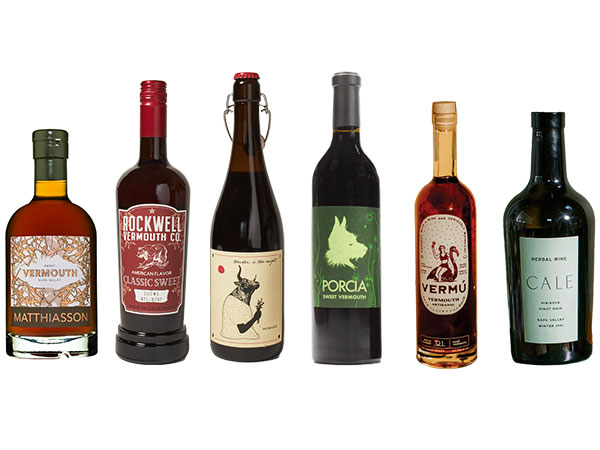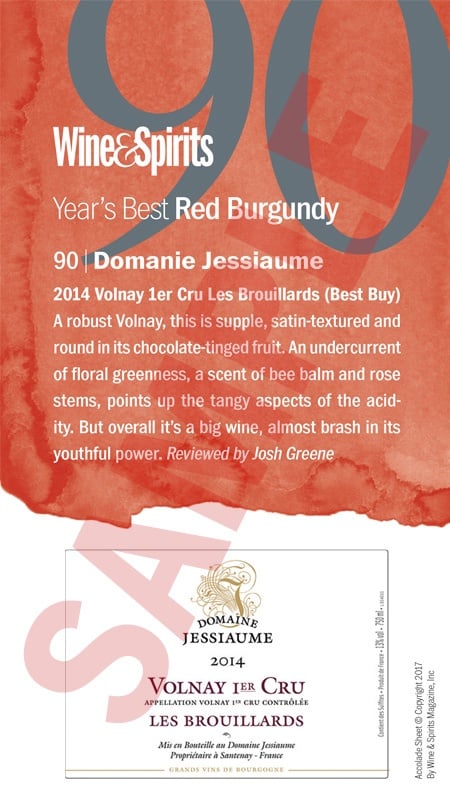

Photo by Nick Mrozowski.
People who love vermouth are known evangelists. They rhapsodize about the drink’s millennia-long history and medicinal roots, hoping to convince others that they should love vermouth, too. It wouldn’t be necessary in, say, Spain, where young people while away Sunday afternoons in cramped vermuterías sipping vermouth over ice with a splash of soda, an orange slice and an olive. But in the United States, where vermouth never managed to liberate itself from the confines of the cocktail, it needs its crusaders.
A handful of domestic producers are helping to spread the gospel, making deeply American vermouths using locally grown and native ingredients. Bianca Miraglia, who started Uncouth Vermouth in 2013, in Brooklyn, was the first to take this approach, even foraging for her own ingredients. After a two-year hiatus spent resettling into a new farm on a 16-acre forested plot of land some 120 miles north, in Saugerties, New York, she is reintroducing the brand with a sweet vermouth, Porcia (named for her puppy), and a dry bottling, Bianca.
The earliest vermouths, in 16th-century Germany, were made with wormwood. (Vermouth is a transliteration of the German Wermut, though wormwood is rarely used nowadays.) Miraglia uses common mugwort, a related species that grows “absolutely everywhere,” she says, even sprouting through sidewalk cracks in Brooklyn. It’s what gives Uncouth its bracingly bitter edge. The dry Bianca is full of apricot and lavender aromas; the sweet Porcia smells of cherries and sage. They’re nearly the same color in the glass: unlike big brands, neither contains added sugar or coloring. Miraglia forages wild pears in early autumn, using them to sweeten Porcia. She keeps the rest of her process a mystery, as did the monks and alchemists who guarded the secrets of their vermouth recipes for centuries. Mystique remains a part of vermouth’s legacy.
When producers first started commercializing vermouth around the turn of the 19th century, they fortified a white wine base with neutral spirit or brandy, macerating aromatic botanicals in the wine or steeping them in the spirit. While many of these European producers were drawn to herbs and spices from far-away, colonized lands—using citrus peel, clove, cardamom, cacao—contemporary producers in the States have been inspired by their immediate environments.
“That’s the smell of our coast,” thought winemaker Birk O’Halloran when he realized the sagebrush endemic to California’s coastline was in the wormwood family. He introduced Rockwell Vermouth Co., with its Classic Sweet and Extra Dry expressions, in 2020. For the base wine, O’Halloran sources symphony, a grape bred by UC Davis from muscat and grenache gris. The Sweet smells of sarsaparilla and clove. The Dry is all summer fruits and hay, making an elegant aperitif on its own or the beginnings of an outstanding 50/50 Martini.
Steve and Jill Matthiasson, winemakers in Napa Valley, also turned to a UC Davis cross for the base wine for their No. 4 Sweet Vermouth. They work with flora, a crossing of gewurztraminer and semillon that was originally bred for dessert wine. The Matthiassons use fresh blood orange and sour cherries from their orchard, and homegrown cardoons, or wild artichokes, for a distinctly vegetal bitterness. The result is both earthy and fruity. It makes an uncharacteristic Manhattan, bright and summery, but also stands beautifully on its own with dessert.
The low-ABV trend dominating cocktails has given vermouth a stage. For an even lower-ABV option, there’s herbal wine—historically medicinal, like vermouth, though not fortified. Former Miss USA Nana Meriwether has recently launched Cale, a line of low-alcohol wines—under 5 percent—infused with botanicals. Her first release is an intensely floral hibiscus-laced pinot noir. Fruity yet bone dry, it can be sipped like a wine or spritzed, replacing sweet vermouth in an Americano variation.
If Americans ever start drinking vermouth for vermouth’s sake, it may well be due to the Wine Collective—Enrique Pallares and his partners, who set up shop in an abandoned Sears warehouse in Baltimore alongside a craft brewer and a coffee roaster. Last year, they created Vermú, a rosé vermouth that evokes pink grapefruit and chamomile. Enchanting on its own, it’s sublime with a nip of Campari and gin for a Negroni-esque drink called a Marianito.
Pallares is such a champion of vermouth that he makes a second out of his other winery, Casa Carmen, in Maryland. Tender Is the Night is a barrel-aged black vermouth, a rare Spanish style, flavored with black walnuts, wormwood, orange peel, herbs and baking spices. It’s herbaceous and spiced, like a brooding grown-up root beer when topped with soda and a twist. It begs heaping some good tinned fish on bread and pretending it’s pintxos in Iberia.


Pricing
Matthiasson’s No. 4 Sweet Vermouth Napa Valley (17% ABV; $40/375 ml); Rockwell Vermouth Co.’s Classic Sweet (16.5% ABV; $15/750 ml); Casa Carmen’s Tender Is the Night (16.5% ABV; $32/750 ml); Uncouth Vermouth’s Porcia (17% ABV; $35/750 ml); The Wine Collective’s Vermú Rosé (16.5% ABV; $28/750 ml); Cale’s Hibiscus Pinot Noir (4.5% ABV; $25/500 ml)
Chantal Martineau is the author of How the Gringos Stole Tequila and co-author of Finding Mezcal. She lives in New York's Hudson Valley.
This story appears in the print issue of June 2021.
Like what you read? Subscribe today.


















